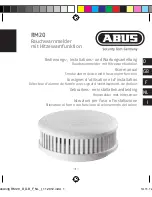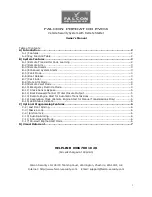
5
(H 4) POWER DOOR LOCK WIRING
DETERMINING DOOR LOCK TYPE:
We recommend determining the type of locking system the vehicle has before
connecting any wires. Incorrect connection may result in damage to the alarm and/or vehicle locking system. This door lock
information is provided as a guide. Your vehicle may differ.
Negative Trigger (-): Many Imports; Late model Ford & General Motors
Negative trigger door lock systems send a Negative (Ground) pulse to existing factory relays to lock and unlock the vehicle
doors.
Positive Trigger (+): Many General Motors; Chrysler / Dodge / Plymouth
Positive trigger door lock systems send a Positive (+12V) pulse through factory relays to lock and unlock doors.
Reverse Polarity: Many Ford/Lincoln/Mercury/Dodge/Chrysler/Plymouth and early 90’s GM Trucks
Reverse Polarity systems use no relays, but instead the door lock/unlock motors are controlled directly from the lock and
unlock switches in the door. The lock and unlock wires rest at Negative Ground when not in use. When the lock or unlock
button is pressed, one of the circuits is “Lifted” and replaced with +12V causing a lock or unlock.
Single Wire (Dual Voltage): Late model Chrysler/Dodge/Plymouth Vehicles, some 2000-UP GM
Dual Voltage systems have lock/unlock switches that send varying amounts of Positive voltage OR Negative ground current
to the SAME wire for both lock and unlock. When the vehicle’s Body Computer Module (BCM) or door lock module senses
different voltages on this wire, the system will either lock or unlock. Single wire door lock systems require relays and
resistors.
Databus Systems (2003 GM Trucks & SUV’s, ‘99-05 Jeep Grand Cherokee)
Databus systems send low current “Data messages” to the door lock controllers in order to lock and unlock the vehicle. To
install aftermarket systems in these vehicles, an interface module is required that converts the regular lock/unlock pulses into
“Data messages” to allow locking & unlocking. Interface modules are sold separately
.






































